Related Research Articles
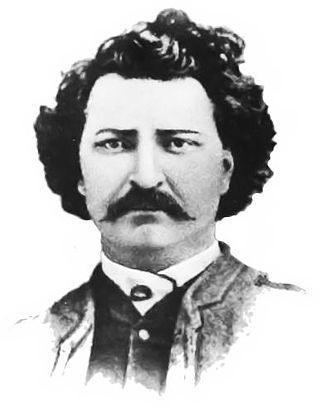
Louis Riel was a Canadian politician, a founder of the province of Manitoba, and a political leader of the Métis people. He led two resistance movements against the Government of Canada and its first prime minister John A. Macdonald. Riel sought to defend Métis rights and identity as the Northwest Territories came progressively under the Canadian sphere of influence.
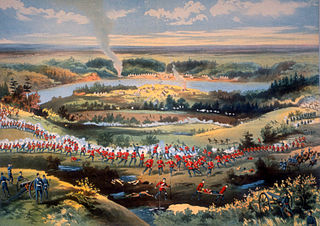
The North-West Rebellion, also known as the North-West Resistance, was an armed resistance movement by the Métis under Louis Riel and an associated uprising by First Nations Cree and Assiniboine of the District of Saskatchewan against the Canadian government. Many Métis felt that Canada was not protecting their rights, their land, and their survival as a distinct people.

The Red River Colony, also known as Assiniboia, was a colonization project set up in 1811 by Thomas Douglas, 5th Earl of Selkirk, on 300,000 square kilometres (120,000 sq mi) of land in British North America. This land was granted to Douglas by the Hudson's Bay Company in the Selkirk Concession. It included portions of Rupert's Land, or the watershed of Hudson Bay, bounded on the north by the line of 52° N latitude roughly from the Assiniboine River east to Lake Winnipegosis. It then formed a line of 52° 30′ N latitude from Lake Winnipegosis to Lake Winnipeg, and by the Winnipeg River, Lake of the Woods and Rainy River.

The Red River Rebellion, also known as the Red River Resistance, Red River uprising, or First Riel Rebellion, was the sequence of events that led up to the 1869 establishment of a provisional government by Métis leader Louis Riel and his followers at the Red River Colony, in the early stages of establishing today's Canadian province of Manitoba. It had earlier been a territory called Rupert's Land and been under control of the Hudson's Bay Company before it was sold.

Events from the year 1885 in Canada.

Events from the year 1884 in Canada.

Thomas Scott was an Irish Protestant who emigrated to Canada in 1863. While working as a labourer on the "Dawson Road Project", he moved on to Winnipeg where he met John Christian Schultz and fell under the influence of the Canadian Party. His political involvement in the Red River Settlement from then on led to his capture at Fort Garry where he was held hostage with others. On 4 March 1870 Scott was marched out of Fort Garry's east gate and was executed on the wall by the provisional government of the Red River Settlement led by Louis Riel.

Joseph-Aldric Ouimet, was a Canadian parliamentarian.

Sir John Christian Schultz was a Manitoba politician and businessman. He was a member of the House of Commons of Canada from 1871 to 1882, a Senator from 1882 to 1888, and the fifth Lieutenant Governor of Manitoba from 1888 to 1895.
The Canadian Party was a group founded by John Christian Schultz in 1869, in the Red River Colony. It was not a political party in the modern sense but was rather a forum for local ultra-Protestant agitators.

Social conservatism in Canada represents conservative positions on issues of family, sexuality and morality. In the European and North American context, social conservatives believe in natural law as well as traditional family values and policies. In Canada's modern context, social conservatism also includes pro-life values on abortion and euthanasia.

Louis Riel is a historical biography in comics by Canadian cartoonist Chester Brown, published as a book in 2003 after serialization in 1999–2003. The story deals with Métis rebel leader Louis Riel's antagonistic relationship with the newly established Canadian government. It begins shortly before the 1869 Red River Rebellion, and ends with Riel's 1885 hanging for high treason. The book explores Riel's possible schizophrenia—he believed God had named him Prophet of the New World, destined to lead the Métis people to freedom.
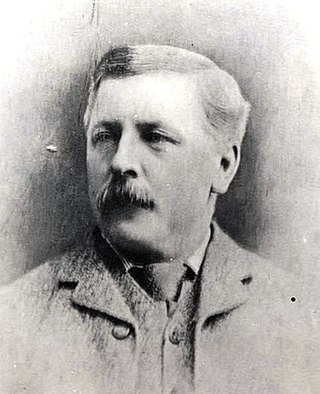
Charles Mair was a Canadian poet and journalist. He was a fervent Canadian nationalist noted for his participation in the Canada First movement and his opposition to Louis Riel during the two Riel Rebellions in western Canada.

The trial of Louis Riel took place in Regina, Canada in 1885. Louis Riel had been a leader of a resistance movement by the Métis and First Nations people of western Canada against the Government of Canada in what is now the province of Saskatchewan. Known as the North-West Rebellion, this resistance was suppressed by the Canadian military, which led to Riel's surrender and trial for treason. The trial, which took place in July 1885 and lasted five days, resulted in a guilty verdict. He was also given a choice to plead guilty or insanity. Riel was subsequently executed by hanging, an outcome which has had a lasting negative impact on relations between Anglophone Canadians and the Riel supporters among French Canadians.

Thomas Eugene Flanagan is an American-born Canadian author, conservative political activist, and former political science professor at the University of Calgary. He also served as an advisor to Canadian prime minister Stephen Harper until 2004.

Post-Confederation Canada (1867–1914) is history of Canada from the formation of the Dominion to the outbreak of World War I in 1914. Canada had a population of 3.5 million, residing in the large expanse from Cape Breton to just beyond the Great Lakes, usually within a hundred miles or so of the Canada–United States border. One in three Canadians was French, and about 100,000 were aboriginal. It was a rural country composed of small farms. With a population of 115,000, Montreal was the largest city, followed by Toronto and Quebec at about 60,000. Pigs roamed the muddy streets of Ottawa, the small new national capital.
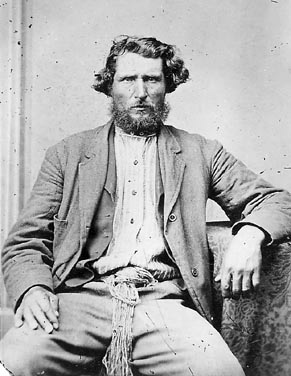
Ambroise-Dydime Lépine was a Métis politician, farmer, and military leader under the command of Louis Riel during the Red River Rebellion of 1869–1870. He was tried and sentenced to death for his role in the resistance regarding the execution of Thomas Scott, but his sentence was commuted to five years exile by the Governor General of Canada.
Due to Louis Riel's ubiquity as one of the most studied figures in Canadian history, the historiography of Louis Riel naturally leads to several interpretations and understandings of actions and reactions depending on the scholar in question. One of the reasons the rebellion or resistance paradigm is so deeply ingrained in the Canadian historical tradition is because Riel has been studied so much. Still this article's challenge is to discover Riel as a human being and to "appreciate the pathos and tragedy" of his life and of Métis history, not to "create, debunk, or venerate" an icon.
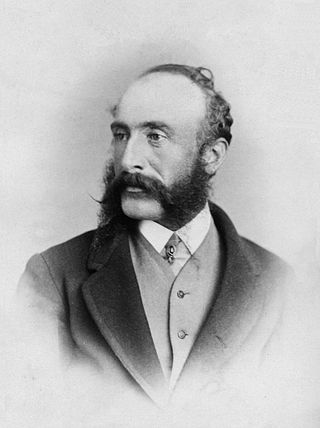
Robert Grant Haliburton Q.C., D.C.L. was a Canadian lawyer and anthropologist. He became famous after founding the Canada First organization that saw English Canadian society as the "heirs of Aryan northmen" and that the French Canadians were a "bar to progress."
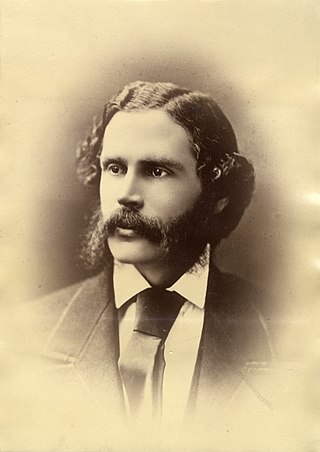
William Alexander Foster,, was a Canadian barrister and essayist, best remembered as a co-founder of the Canada First movement and for his contributions to liberal nationalism in Canada.
References
- ↑ "Canada First | The Canadian Encyclopedia". www.thecanadianencyclopedia.ca. Retrieved 2019-12-29.
- ↑ Vigod, B.L. (2010), Canada First, The Canadian Encyclopedia, archived from the original on 2011-07-20, retrieved 2010-04-21
- ↑ Siamandas, George, John Christian Shultz One of Manitoba's Colourful Businessmen Becomes Lieut. Gov , retrieved 2010-04-21
- ↑ Dictionary of Canadian Biography Online: Schultz, Sir John Christian, University of Toronto, 2000, retrieved 2010-04-21
- ↑ Dimitry Anastakis (2015). Death in the Peaceable Kingdom: Canadian History since 1867 through Murder, Execution, Assassination, and Suicide. U of Toronto Press. p. 27. ISBN 9781442606364.
- ↑ Hougham, G.M. (May 1953). "Canada First: A Minor Party in Microcosm". The Canadian Journal of Economics and Political Science. 19 (2): 175. doi:10.2307/138387. JSTOR 138387.
- ↑ Hougham, G.M. "Canada First": 177.
{{cite journal}}: Cite journal requires|journal=(help) - ↑ Vigod, B.L. "Canada First". The Canadian Encyclopedia. Archived from the original on March 16, 2012. Retrieved 29 September 2013.
- ↑ Taylor, M. Brook (1994). "Lindsey, Charles". In Cook, Ramsay (ed.). Dictionary of Canadian Biography. Springer Science & Business Media. ISBN 978-0-8020-3998-9.